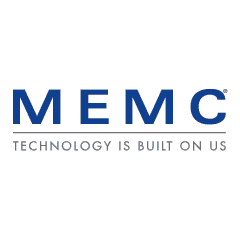Altai Capital, managed by the trio of Rishi Bajaj, Toby Symonds, and Steve Tesoriere, is a mid-sized hedge fund with an estimated $620 million in assets under management. Altai uses a variety of investment strategies, and has roughly half of its capital allocated in U.S equities. With a 13F portfolio of just under $200 million, the fund has a strong focus on the technology sector, most notably in MEMC Electronic Materials, Inc. (NYSE:WFR). Altai’s position in the semiconductor materials and solar energy company accounted for 18.7% of its total 13F holdings at the end of last quarter. Here’s a look at Altai’s portfolio in its entirety.

Despite the fact that MEMC has already made great strides in solar power, it is still pushing to increase vertical integration, especially into the business of actually installing the panels themselves. As is typical with any company that establishes this type of comprehensive model, efficiency will improve. The company’s gross margin is currently between 6-7%, which is far below pure solar power companies First Solar, Inc. (NASDAQ:FSLR) at 26.9%, and SunPower Corporation (NASDAQ:SPWR) at 10.0%, and a hybrid like Veeco Instruments Inc. (NASDAQ:VECO) at 45.5%, which makes LED and solar equipment.
As semiconductor prices remain stuck at historically low levels near $20-$25 a kilogram, MEMC has seen its profitability take a sharp dive downward over the past five years; the company’s earnings have shrank by an average of 52.3% a year, falling far flatter than Vecco Instruments (+57.3%), First Solar (+35.9%), SunPower (-19.4%), and the Chinese Trina Solar Limited (NYSE:TSL) at +38.4%. Shifting its focus on the higher-margin solar power industry will make a difference going forward, as MEMC will have a distinct advantage over the majority of its competitors – it will control wafer production in-house. Over the next half-decade, analysts expect the company to generate positive annual EPS growth of 15.0%.
From a valuation standpoint, it appears that the markets are underappreciating the synergies that MEMC should take advantage of once vertical integration is completed. The company’s stock trades at a forward earnings multiple of 8.7X, which is below its historical average P/E of 12.8X, and the likes of Veeco (15.1X) and SunPower (20.5X). Interestingly, First Solar is cheaper than MEMC when using this metric, as its five-year expected EPS growth (16.2%) is a tick above the company’s own expected growth rate.
MEMC trades at modest price-to-book (0.9X) and price-to-cash flow (1.2X) ratios, and is undervalued quite significantly on a sales basis, as the stock sports a P/S multiple of 0.2X. This is over 50% lower than pure solar competitors like First Solar, SunPower, and on-line with Trina Solar. Integrated competitors have much higher sales multiples; Veeco’s is 1.5X.
In addition to its bullish EPS outlook, predominantly attractive valuation, and continued shift toward solar panel production and installation, it’s not a bad reason to follow Altai Capital into MEMC. Since doubling its stake in the company earlier this year, Altai has seen a return of close to 40% on its investment in a little over four months. Other hedge fund managers that have benefited from this appreciation are Steven Cohen, Chuck Royce, and John Levin. For a complete look at the industry’s sentiment toward MEMC, continue reading here.





